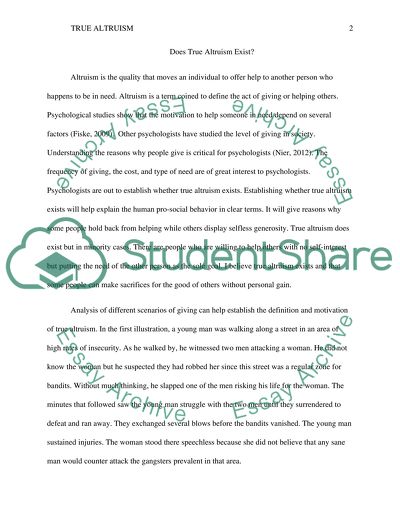Cite this document
(“Does True Altruism Exit Research Paper Example | Topics and Well Written Essays - 1250 words”, n.d.)
Retrieved from https://studentshare.org/psychology/1444872-does-true-altruism-exit
Retrieved from https://studentshare.org/psychology/1444872-does-true-altruism-exit
(Does True Altruism Exit Research Paper Example | Topics and Well Written Essays - 1250 Words)
https://studentshare.org/psychology/1444872-does-true-altruism-exit.
https://studentshare.org/psychology/1444872-does-true-altruism-exit.
“Does True Altruism Exit Research Paper Example | Topics and Well Written Essays - 1250 Words”, n.d. https://studentshare.org/psychology/1444872-does-true-altruism-exit.


